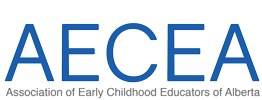The ideas and suggestions included in this checklist and resource hub— ranging from choosing safer cleaning products and toys to introducing a fragrance-free policy or composting program — can help a child care program go beyond basic regulatory requirements to create healthier and more sustainable indoor and outdoor environments for the children in their care.
The checklist corresponds with content in the CPCHE Healthy and Sustainable Child Care Resource Hub. As you move through the checklist sections, click the links provided to learn more about the recommended actions and why they are important.
You may complete the checklist all at once or, if you have provided your email address and selected save, you can return to complete the checklist at a later time.
The checklist comprises 102 questions across the following topic areas.
- Outdoor Air Quality (questions 1-8)
- Indoor Air Quality (questions 9-18)
- Outdoor Learning and Play (questions 19-28)
- Indoor Learning and Play (questions 29-43)
- Sun Safety and Extreme Heat (questions 44-50)
- Cleaning and Disinfecting (questions 51-60)
- Kitchen and Food Preparation (questions 61-73)
- Facility Maintenance and Office Administration (questions 74- 80)
- Sustainability and Climate Action (questions 81- 95)
- Inclusivity, Equity and Accessibility (questions 96- 102)
Who is the checklist for and how can it be used?
Early Childhood Educators and providers may wish to use the checklist to learn about ways to enhance environmental health and sustainability, and to better understand where their child care program is doing well and where there are opportunities for improvement. They can also complete the checklist to earn Professional Development credits (see below). Child care administrators and directors may wish to use the checklist together with staff as an assessment and planning tool, and as a way to track and report on progress over time (e.g., sharing results with board members, communities and families). Public Health Inspectors may use it with child care programs during routine visits, as an additional resource to discuss environmental health concepts and suggest possible actions. Parents and guardians may wish to use it as a basis for engaging in a dialogue with their local child care program about health and sustainability. However you engage with this resource, we applaud your efforts.
Getting your Professional Development Certificate
Upon completion of the checklist, the Canadian Child Care Federation will provide a one hour Professional Development certificate. A certificate will be auto generated upon completion and sent to the email address you have provided.
RTF may be available. Contact the Alberta Child Care Grant Funding Program to confirm eligibility.
See more information here.
